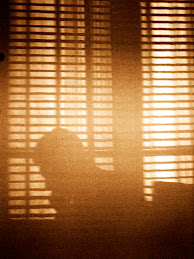Beijing is racing to avoid an Olympic-size food scare.
By Melinda Liu
Newsweek
July 23, 2007 issue - It was a harsh penalty even by the standards of China, which executes more criminals every year than any place else in the world. The former head of the State Food and Drug Administration was put to death last week. His crime: approving untested medicines in exchange for $850,000 in bribes. At least 10 deaths have been blamed on bogus antibiotics that were OK'd during his tenure. But his offense went far beyond that—an SFDA spokeswoman said Zheng Xiaoyu had brought "shame" on the agency.
Shame has always been a dreaded force in China—and now it has Beijing's leaders scrambling to save face amid the country's multiplying food-, drug- and product-safety scandals. In centuries past, the Chinese emperor's No. 1 responsibility was to guarantee that his subjects were adequately fed. Only then did he earn the "mandate of heaven" that justified his reign. And this in essence has been the Communist Party's bargain with China since the days of Deng Xiaoping: in return for accepting a sometimes brutal regime, the people would be allowed to prosper. Now, however, the rotten underpinnings of that prosperity have emerged as a threat to the "harmonious society" promoted by President Hu Jintao and Prime Minister Wen Jiabao. "The top leaders have decided you can't have leading regulators' behavior leading to the death of citizens," says David Zweig, a Sinologist at Hong Kong University. "How can people have a harmonious society with such deaths?"
The People's Republic is a schizoid superpower, with one foot in the gleaming, high-tech 21st century and the other in a 19th-century sweatshop. Too often it's the latter that produces China's foodstuffs, pharmaceuticals and consumer goods, and the result is distress and sometimes death for ordinary citizens, especially the ones who have no choice but to buy the cheapest goods on the market. Recognizing that the next big consumer-safety scandal might be the one that provokes a wave of antigovernment unrest, Chinese authorities have announced stricter drug-approval guidelines. A court has sentenced Zheng's secretary to death "with a two-year reprieve" (a term that is often commuted to life imprisonment). And small private processed-food outfits were ordered to clean up their act. To drive the message home, last week Chinese television aired hidden-camera footage of a food vendor concocting baozi dumplings from fatty meat, seasonings—and scrap cardboard scavenged from the street and marinated in caustic soda.
The worst fear is another food scandal in the run-up to next summer's Beijing Olympics. The leadership wants to make the event a kind of coming-out party for China as a full-fledged member of the modern world. Last week Beijing authorities publicly guaranteed the safety of everything Olympic athletes will be served, including 82 tons of seafood and 200 gallons of ketchup. "All the procedures involving Olympic food, including production, processing, packaging, storing and transporting will be closely monitored," promised Sun Wenxu of the State Administration for Industry & Commerce. If anything goes wrong, officials might die of embarrassment.
URL: http://www.msnbc.msn.com/id/19762051/site/newsweek/
samedi 4 août 2007
Inscription à :
Publier les commentaires (Atom)




Aucun commentaire:
Enregistrer un commentaire